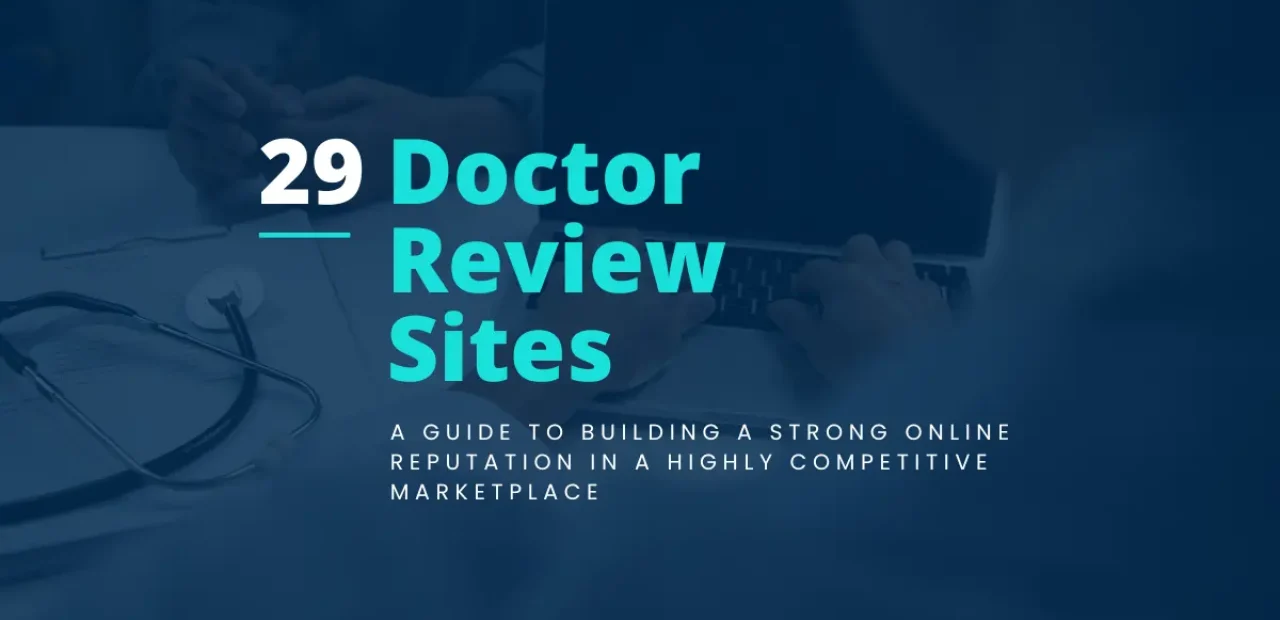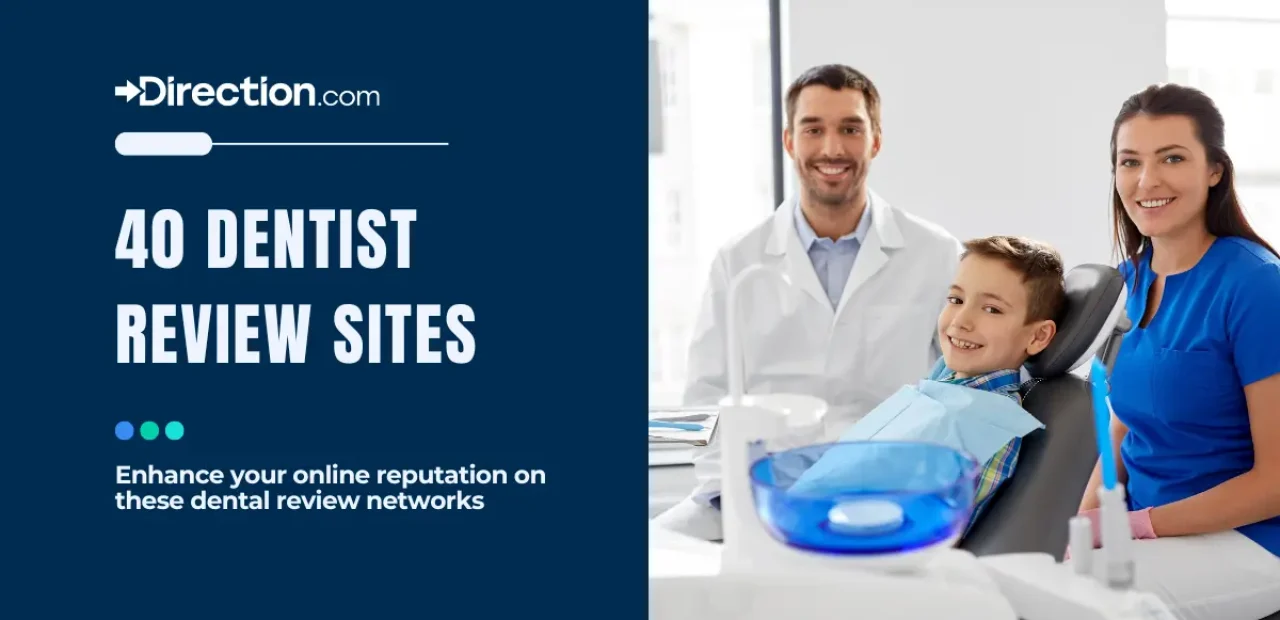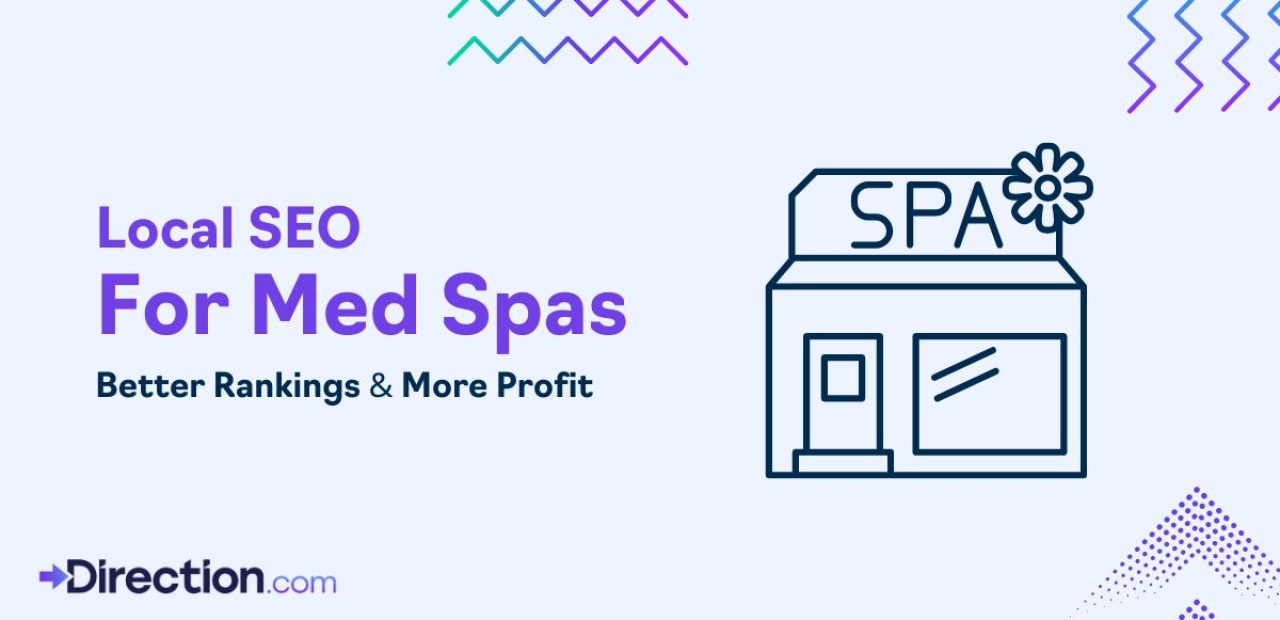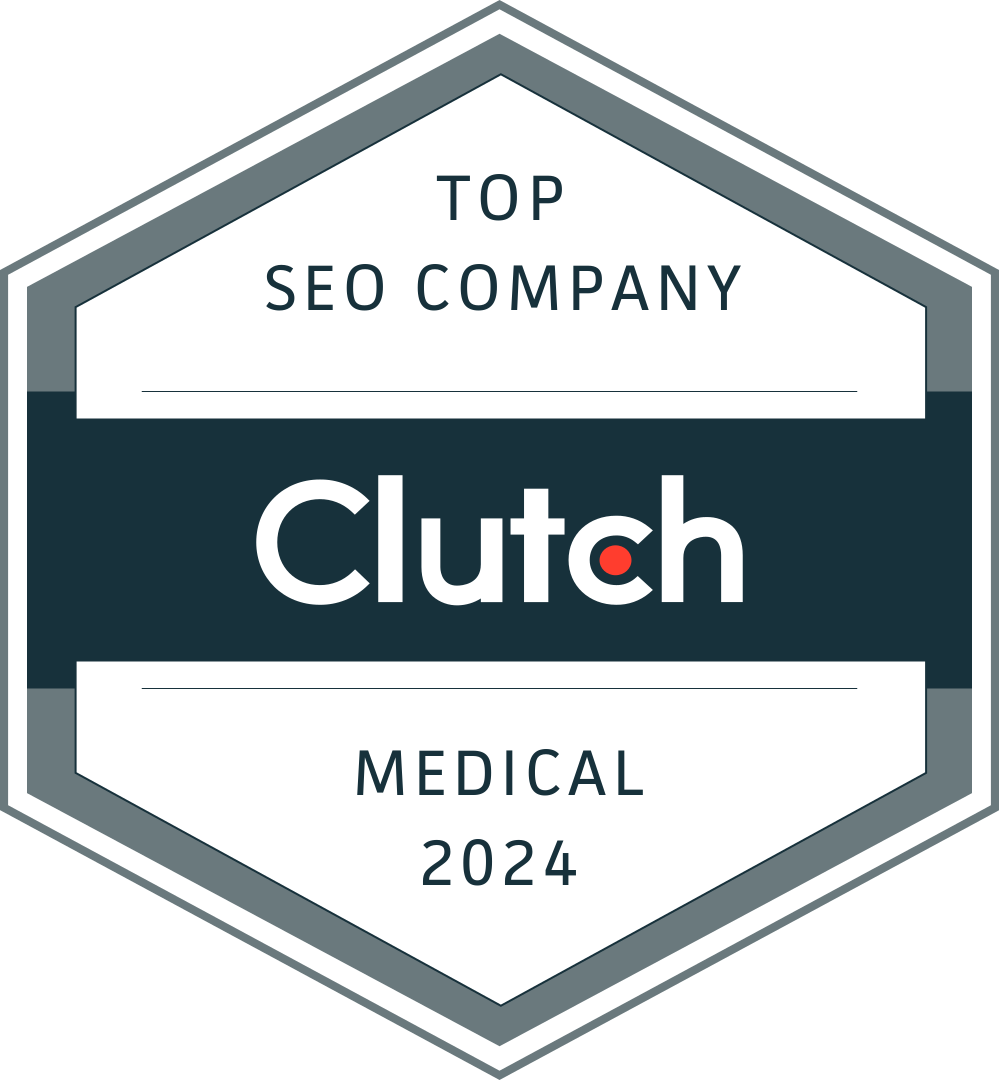Healthcare digital marketing is the strategic use of online channels, digital technologies, and patient-focused strategies specifically designed to attract, engage, and convert patients for medical practices and healthcare organizations. Unlike traditional marketing approaches that rely on broad advertising, healthcare digital marketing emphasizes local SEO optimization, HIPAA-compliant content creation, Google Business Profile management, and mobile-optimized patient experiences to guide potential patients from initial search queries to appointment bookings.
Key Takeaways
- Patient search behavior has fundamentally shifted – 92% of patients now choose providers from the first page of Google results, making digital visibility essential for practice growth
- Local SEO drives the majority of healthcare searches – 46% of all Google searches are local, with “near me” healthcare searches skyrocketing since COVID-19 changed patient expectations
- Google Business Profile optimization delivers immediate results – practices with complete profiles see up to 70% more visits than those with incomplete information
- Mobile-first approach is non-negotiable – over 60% of healthcare searches happen on mobile devices, requiring fast-loading, mobile-optimized websites for patient conversion
- Educational content builds trust and authority – 70% of patients trust online health information when choosing providers, making valuable content a competitive advantage
- HIPAA compliance must be built into every digital strategy – from review responses to content creation, healthcare marketing requires strict privacy protection across all online channels
- Different specialties require tailored search strategies – dental practices focus on emergency care and cosmetic procedures, while mental health providers emphasize telehealth and insurance acceptance
- Results follow a predictable 12-month timeline – technical improvements and local optimization deliver early wins in months 1-3, with authority building and conversion optimization driving long-term success
In 2025, effective healthcare digital marketing integrates search engine visibility, online reputation management, educational content, and conversion-focused digital touchpoints to help practices dominate local search results while building lasting patient relationships and trust.
Healthcare providers face a clear reality in 2025: your next patient’s journey starts with healthcare digital marketing. More specifically, patients begin their search for care online, making it crucial for practices to establish a strong digital presence.
Think about it—when was the last time you searched for a new service offline? Patients today expect to find healthcare providers in the same way they’d look for a coffee shop or a mechanic: quickly, locally, and online.
But here’s the catch—just being online isn’t enough. To stand out, your practice needs to show up where patients are searching (spoiler alert: it’s probably Google), offer them the information they need, and make it simple for them to book an appointment. Without this, you’re leaving patients to your competitors.
This guide will walk you through actionable steps to improve your healthcare digital marketing and SEO in 2025, covering trends like local SEO, HIPAA-compliant strategies, and emerging tools that set successful practices apart.
The New Patient Journey Starts Online
Today’s patient journey is fueled by healthcare marketing. From researching providers to scheduling appointments, patients expect fast and seamless online experiences. COVID-19 accelerated this shift, permanently altering search behavior and expectations. Here’s what patients demand in 2025:
- Digital appointment scheduling and reminders
- Virtual care options readily available
- Quick access to provider credentials and reviews
- Educational health resources
- Rapid responses to online inquiries
Meeting these expectations requires strategic investments in healthcare digital marketing, including optimizing your website, leveraging reviews, and ensuring a seamless user experience.
What if we told you your Google Business Profile could increase visits by 70%? Optimizing it might be the simplest yet most effective move for your practice this year.
What Drives Patient Decisions in 2025?

In 2025, digital touchpoints determine whether patients choose your practice. Healthcare digital marketing tools like Google search, reviews, and location pages play a pivotal role in driving patient decisions. Here are some statistics to highlight this:
• 92% of patients choose a provider from the first page of Google results.
• The top three organic results capture 62% of all clicks.
• Practices with optimized Google Business Profiles see up to 70% more visits.
Healthcare Provider Types and Search Behavior
Different medical specialties attract distinct search patterns from potential patients. Understanding these patterns helps practices target their marketing effectively.
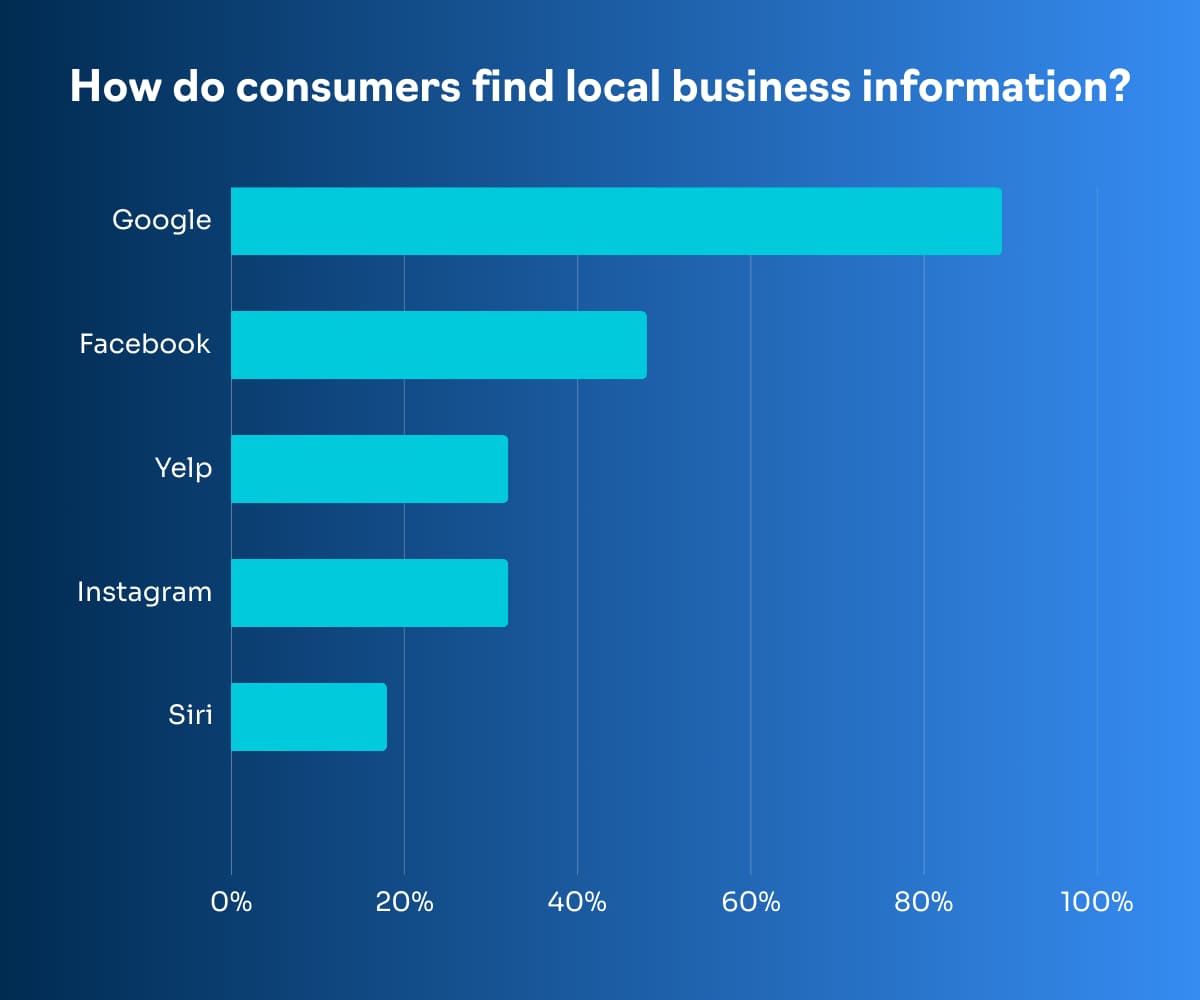
Dental Practices
Dental patients frequently search for regular cleanings and check-ups, along with cosmetic procedures. Emergency dental care remains a high-priority search topic, especially during off-hours. Family dentistry services generate significant search volume as parents look for providers who can treat the whole family.
Mental Health Providers
Mental health searches often focus on specific therapy specializations and treatment approaches. Potential clients research insurance acceptance extensively before making contact. Telehealth options have become a primary search consideration since the pandemic, with many patients preferring providers who offer virtual sessions.
Physical Therapy
Physical therapy searches typically center on injury-specific treatment and post-surgery rehabilitation programs. Patients actively research insurance coverage and location accessibility, prioritizing convenient options that fit their recovery needs. Many searchers investigate specific conditions and expected recovery timeframes before selecting a provider.
Primary Care Providers
Patients searching for primary care providers often prioritize convenience, accessibility, and trustworthiness. Unlike other specialties, primary care searches tend to focus on finding long-term providers for ongoing health management.
Key search behaviors include:
•“Primary care doctor near me”: Patients use localized searches to find clinics close to their home or workplace.
•Same-day or walk-in appointments: Many patients prioritize practices offering immediate or next-day availability.
•Preventive services: Common search queries include terms like “annual physical exam,” “wellness check-up,” or “vaccination clinic.”
•Insurance acceptance: Patients often refine their search by checking whether their insurance plan is accepted at the practice.
To effectively attract and retain patients, primary care marketing strategies should focus on local SEO, optimizing Google Business Profiles, and building trust through patient reviews and educational content. Highlighting same-day availability or patient-focused services in ads and website content can help practices stand out in a competitive market.
Effective Digital Strategies for Healthcare Providers

In today’s competitive environment, healthcare digital marketing requires a multi-faceted approach. But where should you focus your efforts? From improving local search rankings to creating engaging content, effective digital strategies not only help patients find your practice but also build the trust needed to turn online searches into booked appointments.
Below, we’ll break down the key strategies every healthcare provider should prioritize to grow their practice in 2025.
Local SEO: The Cornerstone of Healthcare Digital Marketing
If your practice isn’t dominating local search results, you’re missing some of the biggest healthcare digital marketing opportunities to connect with patients in your area.
Why? Because 46% of all Google searches are local and “near me” searches for healthcare providers have skyrocketed in recent years.
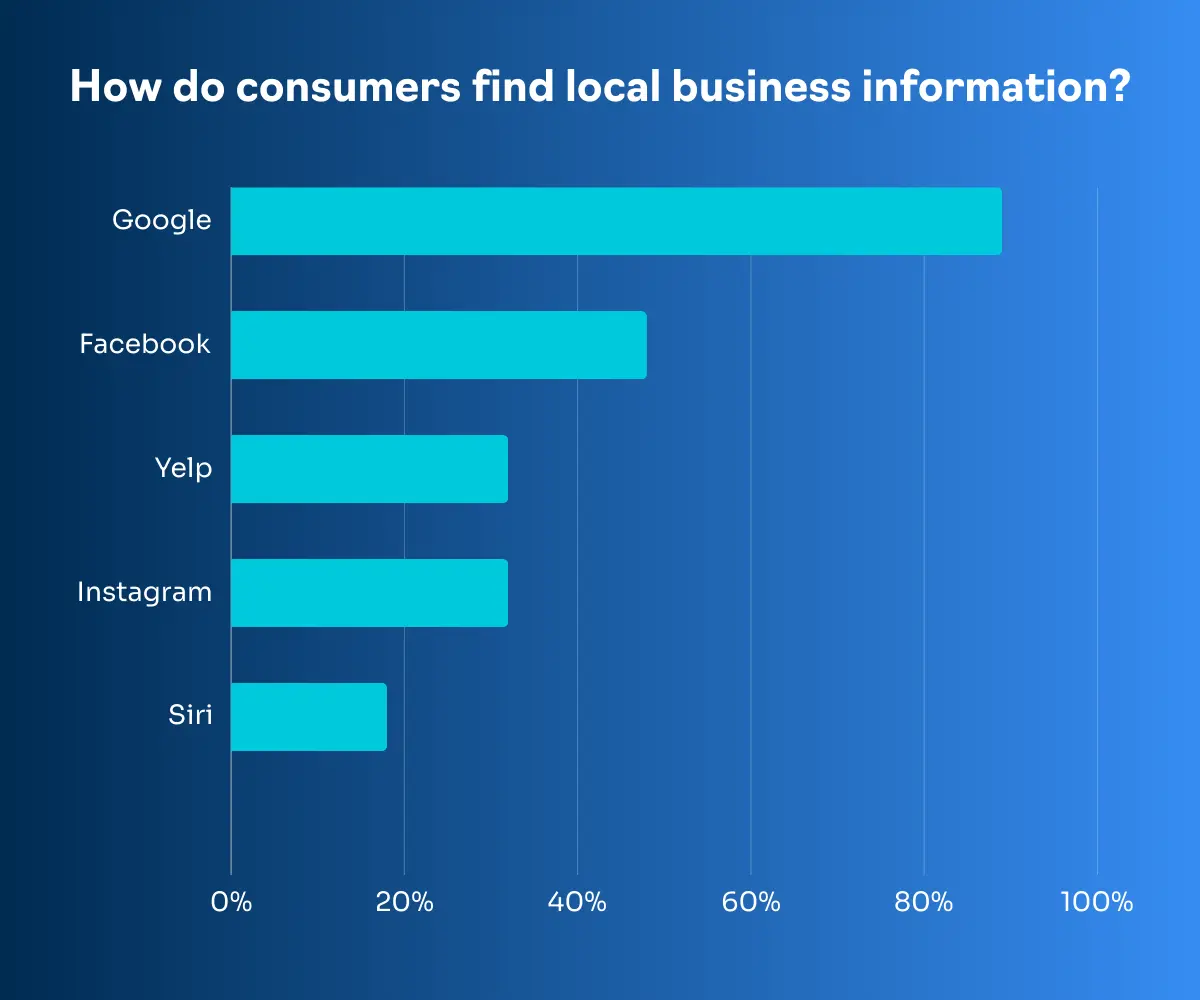
Want to show up in these searches? Start with these steps:
1. Optimize Your Google Business Profile:
• Include accurate details like your hours, services, and contact info. Add photos of your facility to build trust.
• Pro Tip: Practices with complete profiles see up to 70% more visits than those with incomplete ones.
2. Leverage Location-Specific Content:
• Create dedicated landing pages for your practice locations.
• Use keywords like “family doctor near me” or “urgent care in [City].”
• Include driving directions, parking tips, and photos for a personal touch.
3. Encourage and Manage Patient Reviews:
• Reviews aren’t just for building trust—they’re a ranking factor on Google. Make it easy for satisfied patients to leave reviews by sharing links via email or SMS.
• Monitor reviews carefully and respond to both positive and negative feedback professionally.
4. Make Your Website Mobile-Friendly:
• Over 60% of healthcare searches come from mobile devices. Ensure your website loads quickly and is easy to navigate on smaller screens.
By prioritizing local SEO, your practice can dominate “near me” searches and consistently connect with the patients who are ready to book.
Create Educational Content That Patients Can Trust
Research shows 70% of users trust online health information when choosing providers.
Healthcare digital marketing isn’t just about being found online—it’s about building trust. By creating educational content, your practice can establish itself as a reliable resource and authority in your field.
The most effective healthcare content addresses:
- Common patient questions
- Treatment explanations
- Preparation guidelines
- Recovery expectations
- Insurance information
HIPAA-Compliant Healthcare Digital Marketing
Healthcare marketing requires strict adherence to privacy regulations across all digital channels. Understanding and implementing these requirements helps protect both your practice and your patients.
Review Management
Medical practices must handle online reviews with particular care. Never confirm patient relationships in responses, and avoid sharing any identifiable information. Instead, develop standard response templates that acknowledge feedback while maintaining privacy. Implement clear review policies that guide staff on proper engagement with patient comments.
Content Guidelines
Content creation for healthcare requires extra attention to privacy and compliance. Patient testimonials should only be used with explicit written consent, and case studies must have all identifying details removed. When using images, either obtain clear permission or rely on stock photos. All content should strictly follow medical advertising regulations for your specialty.
Key data protection requirements include:
- Secure forms and chat features
- Encrypted data transmission
- Privacy policy compliance
- Clear consent processes
Essential Marketing Tools for Healthcare Practices
Successful online presence requires HIPAA-compliant tools:
- Google Analytics 4 with proper settings
- Secure email marketing platforms
- HIPAA-compliant review systems
- Protected content management
- Secure form collection
Healthcare Multi-Location Strategy
For practices with multiple locations:
Individual Location Pages
- Unique content for each office
- Location-specific contact details
- Staff and service information
- Directions and parking details
Google Business Profile Management
- Separate profiles per location
- Consistent NAP information
- Location-specific reviews
- Individual photo galleries
Direction’s Healthcare SEO Results and Timeframes

A strong healthcare digital marketing strategy delivers measurable results. Here’s what our clients typically experience:
First 3 Months: Laying the Foundation for Growth
The first three months focus on building a strong SEO foundation to generate quick wins and set the stage for sustainable growth. We prioritize:
- Technical SEO Enhancements: Addressing website speed, mobile optimization, and indexing issues to ensure search engines can properly crawl and rank your site.
- Google Business Profile Optimization: Updating your profile with accurate hours, services, and photos to capture local search traffic.
- Quick-Win Content Updates: Refining pages that already rank on pages 1-2 of Google by improving on-page elements like titles, meta descriptions, headers, and internal links.
- Backlink Acquisition Strategy: Building high-authority backlinks from reputable, industry-related websites to increase your site’s authority and trustworthiness.
- Tracking Setup: Implementing tools like Google Analytics, Google Search Console, and CallRail to monitor campaign performance and patient inquiries.
- Goal: Achieve early ranking improvements for high-potential keywords while driving targeted traffic to your site.
Months 4-6: Gaining Momentum
With a solid foundation in place, months 4-6 focus on amplifying your online presence and expanding visibility across multiple channels. Key activities include:
- Content Expansion: Developing and publishing high-value blog posts and service pages targeting new, untapped keyword opportunities.
- Local SEO Dominance: Strengthening location-specific strategies, including geo-targeted content and building reviews for your Google Business Profile.
- Enhanced On-Page Optimization: Further refining on-page elements, such as adding schema markup for rich search results and enhancing user engagement through better calls-to-action (CTAs).
- Review Generation Campaigns: Encouraging patients to leave positive reviews and responding to feedback to improve online reputation.
- Goal: Increase local search visibility, grow organic traffic, and boost patient inquiries.
Months 7-12: Establishing Authority and Driving Conversions
The final phase focuses on solidifying your practice’s position as a leader in local healthcare searches and turning your website into a conversion powerhouse. Key deliverables include:
- Consistent Content Creation: Developing long-form, authoritative content to answer patient questions and establish thought leadership.
- Strong Local Rankings: Cementing your practice’s position on page one of Google for competitive keywords and “near me” searches.
- Conversion Rate Optimization (CRO): Analyzing user behavior and optimizing landing pages to maximize appointment bookings and inquiries.
- ROI Analysis and Strategy Refinement: Reviewing performance metrics to identify top-performing strategies and areas for improvement, setting the stage for the next 12-month roadmap.
- Goal: Deliver consistent new patient acquisition, build lasting content authority, and achieve a positive return on investment (ROI).
Build Your Practice’s Online Success Strategy with Direction
Healthcare practices that succeed online in 2025 understand the importance of strategic digital presence. They consistently rank well in local searches while providing valuable health information to their communities. These successful practices maintain strict HIPAA compliance throughout their marketing efforts while actively managing their online reputation.
Tracking marketing ROI helps these practices refine their approach over time. They know which channels bring in the most qualified patients and adjust their strategies accordingly. Regular updates to their digital presence keep information fresh and relevant for potential patients.
Direction specializes in healthcare search marketing, bringing qualified patients to practices through proven SEO strategies. We understand healthcare regulations, patient privacy requirements, and what drives patients to choose providers. Our campaigns deliver higher local search rankings and qualified patient inquiries while reducing acquisition costs.
At Direction, we specialize in helping healthcare practices thrive online. From optimizing your local SEO to crafting engaging content, we’ll handle the technical details so you can focus on patient care. Let’s grow your practice together—schedule a call with us today!


